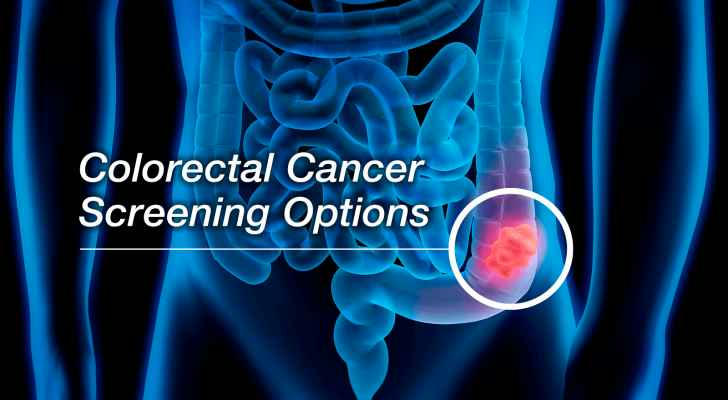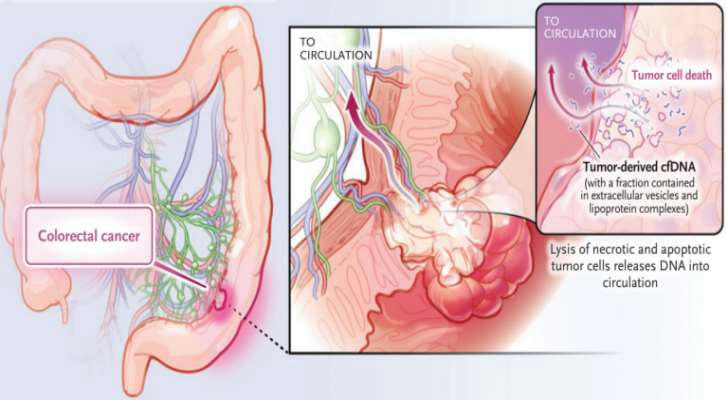FDA Approves Groundbreaking Blood Test for Colorectal Cancer Detection
In a significant leap forward for medical diagnostics, the FDA has given its approval to Shield, a pioneering blood test designed for the early detection of colorectal cancer. This non-invasive screening method promises to make the detection of this common and often deadly disease more accessible, potentially leading to increased early intervention and improved survival rates.

The Significance of Early Detection
Colorectal cancer is a leading health concern in the United States, with a significant number of new cases diagnosed each year. Despite the availability of treatment options that have been shown to be effective in the early stages of the disease, many individuals do not adhere to the recommended screening guidelines, which suggest starting screenings at age 45. The introduction of a simple blood test like Shield could significantly increase compliance with these guidelines, leading to earlier cancer detection and treatment.
Shield Test: A Game Changer in Screening
The Shield test, developed by Guardant Health, has been shown in clinical trials to accurately detect tumors in the colon or rectum with an impressive 87% accuracy rate during the early, treatable stages of colorectal cancer. These trials, the results of which were published in The New England Journal of Medicine, provide a strong evidence base for the test's efficacy.
The Impact of Shield on Current Screening Practices
Traditional colorectal cancer screening methods include feces-based tests and colonoscopies, which can be invasive and uncomfortable for patients. The Shield test offers a less invasive alternative that could encourage more individuals to undergo regular screenings. The simplicity of a blood test could also reduce the psychological barriers that some patients face when considering more invasive procedures.
Demographic Trends and the Future of Colorectal Cancer
Colorectal cancer is expected to double in individuals under 50 by 2030, a statistic that underscores the urgency of improving screening methods and increasing early detection rates. The Shield test could play a crucial role in addressing this trend by providing a more palatable screening option for younger adults who may be less likely to undergo traditional screenings.
The Shield Test in Clinical Practice
In clinical practice, the Shield test could be integrated into routine physical examinations, providing a convenient opportunity for early detection. The test's high accuracy rate for identifying cancerous DNA shed by tumors during the treatable stages of colorectal cancer makes it a valuable tool for healthcare providers.

Limitations and Considerations
While the Shield test is a significant advancement in colorectal cancer screening, it is not without its limitations. The test is less effective at detecting precancerous tissue, which is often removed during a colonoscopy to prevent the development of cancer. Therefore, the Shield test should be considered a complement to, rather than a replacement for, existing screening methods.
Cost and Insurance Coverage
The cost of the Shield test and insurance coverage are important considerations for patients. Guardant Health anticipates that the test will be covered by Medicare, which would make it more affordable for many seniors. However, the out-of-pocket cost for patients with private insurance that does not cover the test is yet to be determined. As the test becomes more widely available, it will be crucial to address these financial aspects to ensure accessibility for all patients.
The Shield Test's False Positive Rate
Like any diagnostic test, the Shield test has a false positive rate, which stands at 10% based on clinical trials. While this rate is not insignificant, it is a common consideration in medical diagnostics. Patients who receive a positive result on the Shield test will need to undergo further testing to confirm the presence of colorectal cancer.
Personal Stories: The Power of Early Detection
Personal stories, such as that of John Gormly, a 77-year-old business executive from Newport Beach, California, highlight the life-saving potential of the Shield test. Gormly's positive result on the Shield test led to the detection and removal of stage II colon cancer, allowing for a quick recovery. Stories like Gormly's emphasize the importance of early detection and the role that innovative screening methods can play in saving lives.
The Future of Colorectal Cancer Screening
The FDA's approval of the Shield blood test marks a pivotal moment in the early detection of colorectal cancer. As the test becomes more widely available, it is expected to play a significant role in increasing screening rates and improving patient outcomes. The test's high accuracy rate, combined with the simplicity and minimal invasion of a blood test, make it a valuable addition to the existing screening methods.
Conclusion
In conclusion, the Shield blood test represents a significant advancement in the field of colorectal cancer screening. Its ability to accurately detect tumors during the early, treatable stages of the disease, combined with its non-invasive nature, has the potential to revolutionize the way we approach early cancer detection. As healthcare providers and patients become more familiar with the test, it is likely to become an integral part of colorectal cancer screening strategies. The Shield test's approval is not only a victory for medical innovation but also a beacon of hope for the millions of individuals at risk of developing colorectal cancer. As we continue to seek improvements in cancer detection and treatment, the Shield test stands as a shining example of the progress that can be made through research and development.
